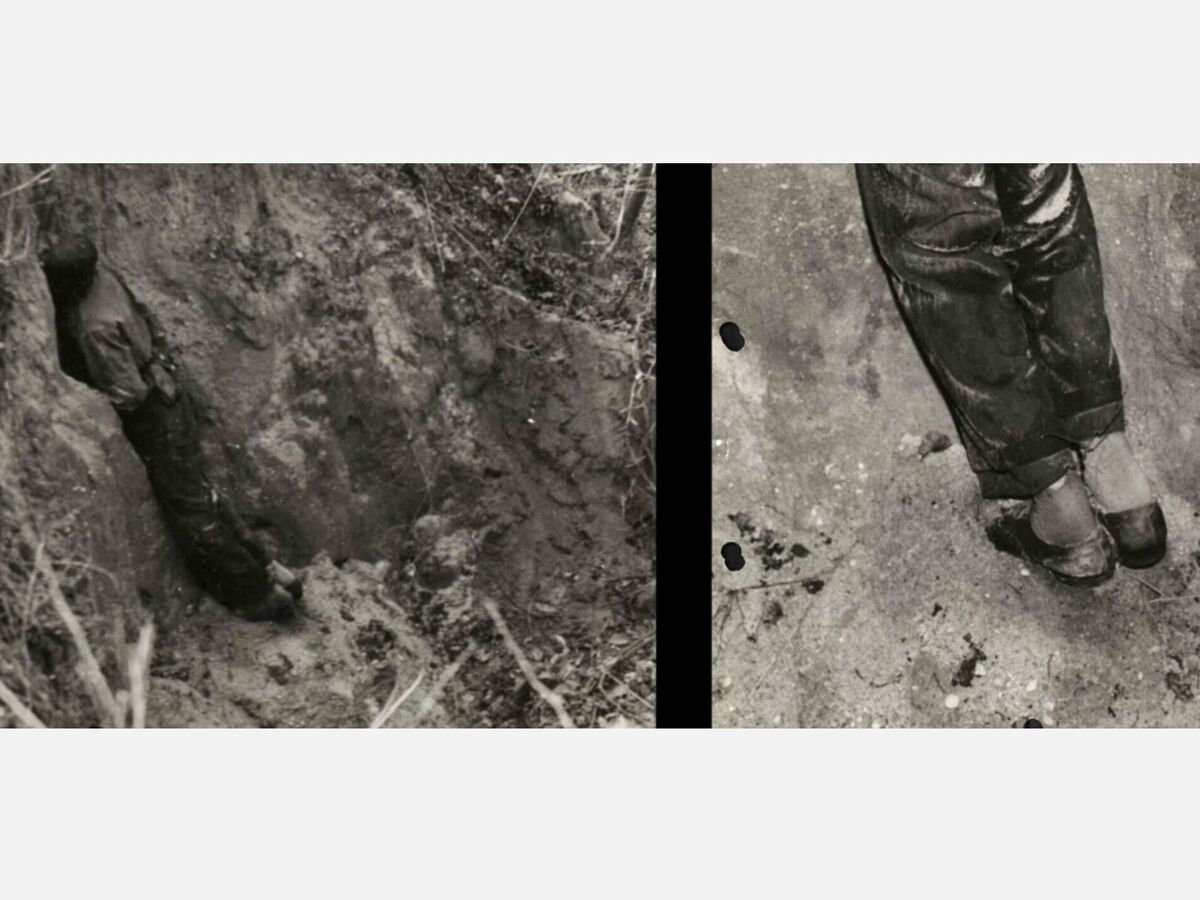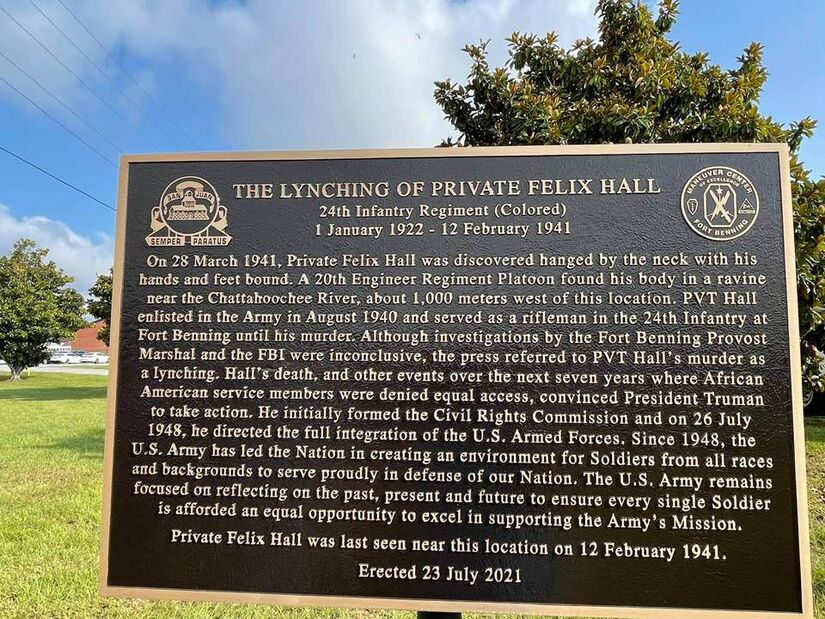Image


AUGUST 2021-
They say Pvt. Felix Hall's body was found weeks before it was reported. His murderers left him there and no one went there to remove his mangled body -covered in maggots- until six weeks after he was killed.
According to the official record, Hall’s decomposing body was discovered by an engineer regiment on a training exercise six weeks after the killing; but a retired social worker who grew up on base revealed that her stepfather had found the body of a black man hanging in the same location in the woods in and had reported it. That particular report was never filed.
Hall was found strung up in a jackknife position in a shallow ravine with a quarter-inch noose tethered to a sapling on the clay earth bank above his head. The noose around his neck had dug into the flesh. The reports showed his feet were bound with baling wire, attached by a second rope to three other saplings, and his hands were tied behind him. He had managed to kick his legs loose and free his left hand. There was enough scraped dirt loose where he had attempted to get enough under his feet to loose the strain from his neck, but the earth was too soft to support his weight. He made it to the arches of his feet before he expired.
Hall was a young teen from Alabama who volunteered himself into service right around the time Japan bombed Pearl Harbor in 1941. World War II was off and popping, and the United States was recruiting young men to serve the country. Hall was in training and fully expected to fight overseas, not shed blood on his own soil.

Feb. 11, 1941:
Private Hall was said to have had an argument with his boss at the sawmill where he had worked for about a month. His boss was a white civilian named Henry J. Smith who allegedly threatened to kill Hall and then fired him.
Feb. 12:
Hall returned to work the next day and around 3:45pm he left with two fellow African-American soldiers and started walking towards the barracks. Hall told his friends he was going to the Post Exchange, the only PX for black people at the time.
Feb. 12 @4 p.m.:
Hall was last seen alive in Block W, a white neighborhood, by a person who went unnamed in the FBI report.
March 28:
Hall’s body was found about six weeks later. No records exist of him being reported missing or of anyone ever going to look for him. As a matter of fact, he appeared to have vanished into thin air regardless of the information they were given by the ones who had witnessed the argument and heard the threat. Pretty odd for a member of the military troops to disappear and no one cares or wants to know where he is. Maybe even assumed he went AWOL (absent without leave).
The FBI and the War Department failed to obtain -and often ignored- critical information about the lynching. Questions were raised about whether or not the War Department cared to get to the bottom of it at all.
A 130-page REDACTED investigation file in the FBI's hands was never disclosed publicly until 2016... 75 years later.
After Hall's body was discovered, military authorities reported his death as a 'possible' suicide. A military physician who examined the body within two weeks of its recovery ruled it a homicide and that's how it was recorded in his death certificate.
Hall's case may be cold, but the justice that was never served remains hot in the frying pan, and there is a valid reason for that.
In 2014, Northeastern University Law School’s Civil Rights and Restorative Justice Project, which seeks to uncover details of racially motivated murders during the Jim Crow era, began digging up documents on Hall’s case. The Northeastern School of Journalism then began a year-long search into the lynching mainly due to the U.S. government’s failed response to make sure justice was done.
Eighty (80) years later, questions still surround the value placed on the lives of young Black persons and whether or not this nation's justice system is still carrying around this burning cross in the yard of double standards.
We know it does, but continuing to hide these matters in the annals of history without so much as a backwards glance is -at the very least- not conducive to this nation ever becoming the promise that it makes and never seems to be able to fulfill.
The world can look the other way, but Mother Justice does not.
Blood still cries from the thousands of graves of many others like Pvt. Hall, and it will not rest until our past carves a way forward for the future and ends this kind of travesty. There can be no ugly stashes, slashes, and gaps in between justice rolling down "like a mighty river" and the failure of a nation that still hedges its largest bets on racial delimiters.
As long as that continues, skin-color racism and the numerous victims of its self-made anarchies will be the never-ending problem that will never go away, even from those who try to run--but they surely cannot hide from it.
Johnnie Warner, Columbus' own Black Historian made this public statement on Facebook (edited):
Last week, this lynching marker was erected by the leaders of Fort Benning, Georgia! Why couldn’t leaders of Columbus, Georgia do the same!...Thank you Congressman Bishop for your compassion to humanity!"